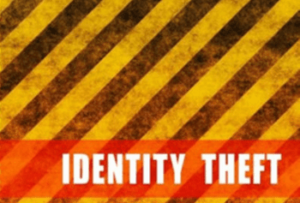 According to LifeLock, 84% of people’s information is on the dark web. Is yours? Think about how you will protect yourself and your information. How often do you check your bank accounts? How often do you check your credit card accounts? You can monitor all this yourself by checking regularly. We check our accounts once per week and we have chosen to freeze our credit reports. #JillRussoFoster #FinancialLiteracyMonth
According to LifeLock, 84% of people’s information is on the dark web. Is yours? Think about how you will protect yourself and your information. How often do you check your bank accounts? How often do you check your credit card accounts? You can monitor all this yourself by checking regularly. We check our accounts once per week and we have chosen to freeze our credit reports. #JillRussoFoster #FinancialLiteracyMonth
Financial Literacy Month #16
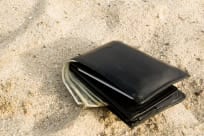 Like Capital One says, What’s in your wallet? Could you tell me everything that is in your wallet right now? If you were to lose your wallet today, how would you know what to cancel and replace. Clean out your wallet and carry only the minimum you require. You should never carry your social security card, your PIN numbers / passwords, blank check(s), passport unless you need to use them that day. Identity theft is on the rise. Protect yourself. #JillRussoFoster #FinancialLiteracyMonth
Like Capital One says, What’s in your wallet? Could you tell me everything that is in your wallet right now? If you were to lose your wallet today, how would you know what to cancel and replace. Clean out your wallet and carry only the minimum you require. You should never carry your social security card, your PIN numbers / passwords, blank check(s), passport unless you need to use them that day. Identity theft is on the rise. Protect yourself. #JillRussoFoster #FinancialLiteracyMonth
What’s In Your Wallet?
As we are at the start of the new year, I wanted to share one of the things I do each and every year. 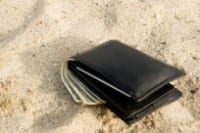
I copy everything in my wallet. Many years ago, my purse was stolen on a Saturday night. I had to recall every item in my wallet. Never again! The thief charged hundreds at the gas station and even more at a local restaurant. No, I wasn’t responsible for any of the charges, but it was still a pain to close out accounts, open new opens, change all the automatic charges that happen to my credit card.
Now, I make a copy of all the items (drivers license, credit cards, medical cards and anything else). To make sure you don’t eave items in the copier, I only copy the front of each card. Then with the space in between each item, I write the phone number and website of the item. This way you won’t leave them in the copier. This may seem old school, but I can’t tell you the times I have referred to this list.
Also, here is a link to an article from AARP about what not to keep in your wallet.
Financial Literacy Month – Tip #14
Here’s the tip from July 30 – Credit month: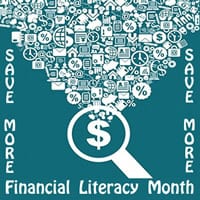
Sounds simple enough, we use the mail all the time for legitimate purposes. But others don’t and you have to be aware and take precautions.
- Don’t put your outgoing mail (especially bills) in your mailbox for someone to steal. Take it to an actual postal mailbox to mail.
- Don’t bring your mail to work to be mailed. Many companies have the mail sitting on the counter for anyone to take. Again, take it to an actual postal mailbox to mail.
- Don’t leave you incoming mail in the mail box all day for others to be able to grab. Talk to your Post Office about what you can do (locked mailbox, slot in your door etc). Maybe have your mail sent to a P O Box.
- Look at your mail promptly. Did you get a declined credit offer when you haven’t applied for credit? It could be a sign that someone may be attempting to open a credit card in your name.
There are many ways to steal someone’s identity, don’t make it easy on them.
To purchase a copy of either of my books Thrive In Five: Take Charge of Your Finances in 5 Minutes a Day or 111 Ways To Save
#JillRussoFoster #30WaysToSave
Are You Going To Be A Victim of Fraud?
It’s said that everyone will be a victim of fraud at least once it their lifetime. Yikes!
What steps are you taking to protect yourself? While you can’t protect yourself 100%, you can take steps to lessen your chances or to catch it as fast as possible. Don’t be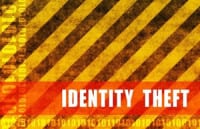 an easy target.
an easy target.
Here are a few tips that we do in our household:
First, your mailbox. Is your mail sitting in there all day or longer? Do you put your outgoing mail in there with the flag up for? All of these are easy targets to get your personal information. In our house, we take all outgoing mail to the Post Office. We pick up our incoming mail daily. Less time for someone to take our bank or credit card statement with our information.
Next is your car. Yes, you know your should lock it, but do you? If you do, what are you leaving inside your car? I just watched a video of people going to the gym and not carrying anything. To me, that means they left their purse / wallet in their car. Depending on the location, this can be an easy target for theft. Are you shopping and putting your packages in the car and going to another store? Leaving your car unlocked or the window partial open can give someone easy access to your belongings.
What about your home? Do you lock your home? What do you toss out / recycle? Think about your documents – can someone steal your identity by taking your trash. We shred everything and you should too. We also installed cameras to monitor our home. What about your computer / cell phones? What activities are you doing on them? Are you always connected to a secure network? Never do tasks such as viewing or paying bills when you are on pubic wifi. Set up two factor authentication for your accounts. Do each of your online accounts have there own user ID and password? When was the last time you changed your passwords? Monitor your bank and credit card accounts at least weekly to look for suspicious activity. Monitor your credit report / score to anything suspicious. Remember, the sooner you catch it, the less they can take.
To monitor your credit report, sign up for my newsletter at www.JillRussoFoster.com. In addition to the newsletter, subscribers will be given a reminder email to view their credit report three times per year for free and it won’t hurt your credit score.
What’s In Your Wallet?
As the holidays approach, I want you to have a a happy, healthy and safe holiday season. Spend some time with family, friends doing the things that you like and want to share.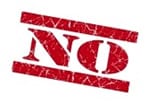
As you are having a great time out and about, I want you to consider this. To coin a phrase, what’s in your wallet? Here are a few things that should NOT be in your wallet for the holidays or other times of the year:
- Social Security Card
- Passport (carry only when traveling internationally)
- Passwords List
The less in your wallet, the better it is for you, if it’s stolen. For more items, AARP’s article 7 Items To Leave Home.
When my purse was stolen, I was fortunate to be able to cancel my credit cards, cell phone etc. The transaction that occurred, took quite a while to have reversed and cleared. Don’t let this happen to you.
Another Data Breach – Was Your Information Compromised?
It happened again – this is NOT the first time and it won’t be the last! Another data breach. This time it’s Capital One!
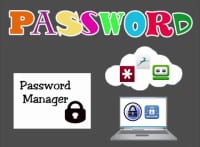
So what should you do?
- When is the last time you changed your passwords? Not only should you change them often, each account should have a different password. Yes, you heard me – each one should be unique. That way if someone gets your password, they won’t have access to all your accounts.
- When is the last time you checked your credit report and/or credit score? You can monitor your own credit easily for free.
- If you are not planning on using your credit in the near future, freeze it. Not only will they not be able to open an account, neither will you. Remember to freeze all three credit reports.
- When is the last time you viewed your accounts? Do you check them in between statements? You should consider checking your accounts at least weekly. The sooner you catch something, the easier it is to stop it.
Take some time to make a plan that works for you and do your research. You may need to do other things to protect yourself. Here are some tips from AARP about the breach.
To be reminded to view your credit report three times a year, sign up for my newsletter and get a reminder email to check your credit report.
You Can’t Have My Information
There are so many ways that scammers can get your information. It’s getting harder and harder to stay under their radar.
Personally, we request do a lot to be off lists: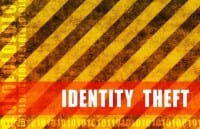
- Mailing List – we opt out of catalogues and unwanted mail. We shred a lot – most information with our name and address.
- Phone – we are on the Do Not Call list and we subscribe to NoMoRobo.
- Contests / Warranties – we don’t do this either. For warranties, we keep the receipt of purchase with the information in case it’s needed in the future.
We were very careful and put minimal information in the newspaper with the last death notice, we were responsible for. We give serious thought to what is posted in social media.
This is a constant effort that needs daily attention.
Do you want to know ways scammers get your information? They can get it through your trash, through your incoming / outgoing mail, over hear you on the phone and so much more. There are ways you probably don’t even realize. Here’s an article from AARP 7 Ways Scammers Get Your Information.
In One More Day
You have heard about all the security breaches – from major retail chain stores to credit bureaus and 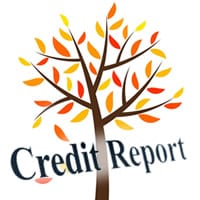 more. You can’t turn on the news or read a newspaper without learning about another breach.
more. You can’t turn on the news or read a newspaper without learning about another breach.
Because of this, I have always encouraged you to freeze your credit to lessen your changes of identity theft. Well tomorrow is a big day for consumers. Credit report freezes will become free – no more small fee to freeze your credit and another small fee to unfreeze – all this adds up. As of tomorrow, September 21, 2018 and just after the one year anniversary of the Equifax breach, there will be no cost to freeze your credit.
Please remember that you will receive a PIN with your freeze. You will need to keep this in a safe place, but not so safe that you forget where you put it to unfreeze your credit.
In addition, fraud alerts will now be available for 1 year (it was 90 days in the past).
Get out there and take advantage of the free credit freeze tomorrow!
Password Security
At this time of year we are getting ready for back to school. Along with all the things happening, somet imes cybersecurity isn’t something that you are thinking about. But it should be.
imes cybersecurity isn’t something that you are thinking about. But it should be.
Your kids are creating new accounts and with that comes passwords. I am reruning a past newsletter on How To Use A Unique Password For Every Account Without Going Crazy.
In addition, Lass Pass’ blog has a great post on .
Make sure to do these steps and share with your kids to be safer online. A little time now could save you hours later.
- 1
- 2
- 3
- …
- 5
- Next Page »